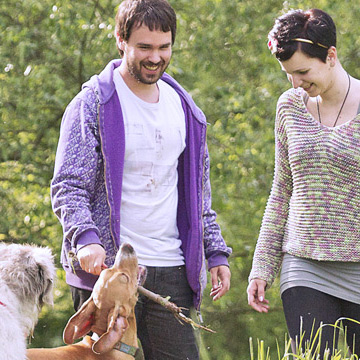We want to share time and gifts — not germs. Here’s how to stay healthy during the holidays.
The holidays are fast approaching, which means lots of folks are planning trips to visit family. So how do we stay healthy during the holidays when we’re traveling and have so many family and friends together with so much potential to spread germs? Ruth Stewart, M.D., of the Vanderbilt Health and Williamson Medical Center Walk-In Clinic in Brentwood, shares healthy holiday tips.
Question: Staying healthy through the holidays is an important topic. Where should we start?
Answer:When people ask how to stay healthy during the holidays, one of the main things I tell them is to get sleep to avoid contracting illness. Lack of sleep really puts you at risk of getting sick during the holidays. Pay attention to sleep and make sure you’re getting plenty of it. Make sure your nutrition is good, and that you are managing stress. Even though holidays can be really fun, and we enjoy seeing our families, it can be stressful. Be mindful of managing stress and trying to keep your immune system as healthy as possible. Also, just generally reduce the germs that you come in contact with. Teach children how to sneeze into their sleeves, and make sure you’re sneezing or coughing into a sleeve or a tissue. Wash your hands every time you have an opportunity.
Question: How often should we be washing our hands?
Answer: If you’re about to eat, you should wash your hands. If you have coughed or sneezed, you should wash your hands. If you’ve been out in a public place, and you may have touched things that other people have coughed and sneezed on, you should wash your hands. That probably equals, for most people, about 10 times a day. If you’re taking care of a sick child, or a sick loved one, it’s probably going to be more frequently than that.
Question: Is hand sanitizer just as good as washing your hands?
Answer: For some infections, yes. Most infections will be killed by the hand sanitizers, but there are some infections, particularly in some of the diarrheal illnesses, that are not. Soap and water is best but it’s not always available, so a second best is the hand sanitizer. If you are using soap and water, it’s good to wash your hands for the length of the Happy Birthday song — for several seconds, really getting the hands thoroughly cleaned with running water, along with the soap, drying thoroughly.
Question: What about using bleach or other types of wipes on surfaces?
Answer: I’m not really sure what the evidence says about those, but I think that it makes sense that if you’re in a public space, and you want to protect against viruses that are pretty hearty and that will stay on surfaces, that it might make sense to wipe off some of those spaces. I would be careful about using them though, because they can be very harsh on your skin. I would also be careful about keeping them away from children, making sure they know not to use them to wipe their hands or faces.
Question: What about the flu shot?
Answer: We definitely recommend the flu shot before the holidays. A lot of people are on planes. Planes are notorious for having lots of people coughing in very small spaces, so it’s a good opportunity to spread infections. A lot of times people go home to elderly people or little babies, and those are the populations that are most vulnerable to the flu. The way that I think about it is: Even if you’re good and healthy, if you got the flu, you’d most likely would do pretty well with it. Even though you’d feel sick and be regretful that you didn’t get the flu shot, the real reason for a good and healthy person to get the flu shot, is you’re trying to protect the little babies and the older people who really don’t have the immune system to be able to fight off the flu.
Question: What about things like vitamins, and different chewable tablets that are supposed to keep you healthy? Do those really work?
Answer: There are a lot of studies looking at those, always with the hope that we’d find something, because we don’t really have good treatment for viruses. We really don’t have treatment for cold viruses, so we have to rely on our immune system to be able to fight those off. The same thing with the flu. We don’t have great treatment, and can just get the person through the illness until they are better. There’s always this hope that something is going to help us, some vitamin or nutritional supplement, but after study, after study, there’s really not been any evidence that any of that really works. The only evidence for anything out there, is a little evidence for zinc. If you feel a cold coming on — a little scratchy throat, a little bit of fatigue — then taking some zinc really early has been shown to reduce the duration of illness, though you still get the cold. If I was going to do anything, I might have some zinc on hand to do that, but the rest of the products are really not very useful.
Question: Before you have visitors, is there anything that you should do to make sure your home is as clean and germ-free as possible?
Answer: Our immune systems are amazing. We fight off infection all the time. Think about doctors and nurses, and those of us that are seeing sick people all the time: We don’t get sick that often. That said, there are some really nasty germs out there, so we want to be careful. Make sure your children all know to wash their hands thoroughly after going to the bathroom. Also, again, teaching children how to sneeze and cough properly into their sleeves and not into the air. Make sure tissue boxes are available, so when people cough and sneeze, they can grab tissues, throw them away and wash their hands. Make sure that there’s plenty of soap and clean towels in the bathroom. Also, be certain that food is prepared properly, for example, making sure your turkey has reached the right temperature to prevent against foodborne illnesses. The surfaces of kitchen counters should be clean and uncontaminated from raw meat or raw eggs. Those are all things that are always good to do, but are particularly important if you have a lot of people around and you don’t want to transmit a lot of infection very quickly.
Question: What if we get sick and it’s the holidays, and we’re around a lot of people, what should we do?
Answer: If you have the flu, a fever, just feel awful, that’s a good sign that it’s beyond something than a cold. If you’re seriously ill, you should isolate yourself, and try very hard to not let anybody else get the flu virus. If you have a seriously ill child, he or she needs to be removed from the rest of the family, and one caregiver should really give the most care to that child to try to prevent the spread.
If you have general cold symptoms with no fever, you want to stay clear of people who might be vulnerable to viruses — little babies, older people, people who have have pulmonary disease, people who have a history of asthma.
Diarrheal illnesses spread quickly through families during holidays. Again, if somebody starts to have diarrhea, make sure to really step up the hygiene and make sure hands are getting washed very frequently, that soiled clothes are removed from the environment, and that the area where any accident might have happened is cleaned thoroughly.
Question: So being together is important but staying apart when ill is just as important?
Answer: The best way to enjoy the holidays is to keep everybody healthy. It’s interesting, we see people who are really excited about seeing their families, and they come in and they’re sick, and we have to tell them, “You know, it really would be best if stayed home and rest.” It’s very disappointing. But you have to consider that the potential of spreading that infection is high, and you really want to have everybody else be able to enjoy the holiday, as well.

Learn more
Vanderbilt Health operates a variety of walk-in clinics in Middle Tennessee, including some with Williamson Medical Center, to take care of everything from sprains and sport injuries to flu shots, fevers, coughs and rashes. Search locations and learn more about the conditions treated there.
If you do get sick, use our online flu tool to decide whether self-care at home or a visit to your healthcare provider is in order.

